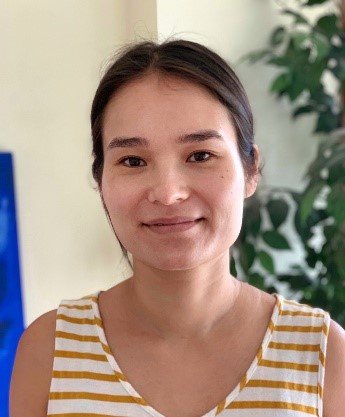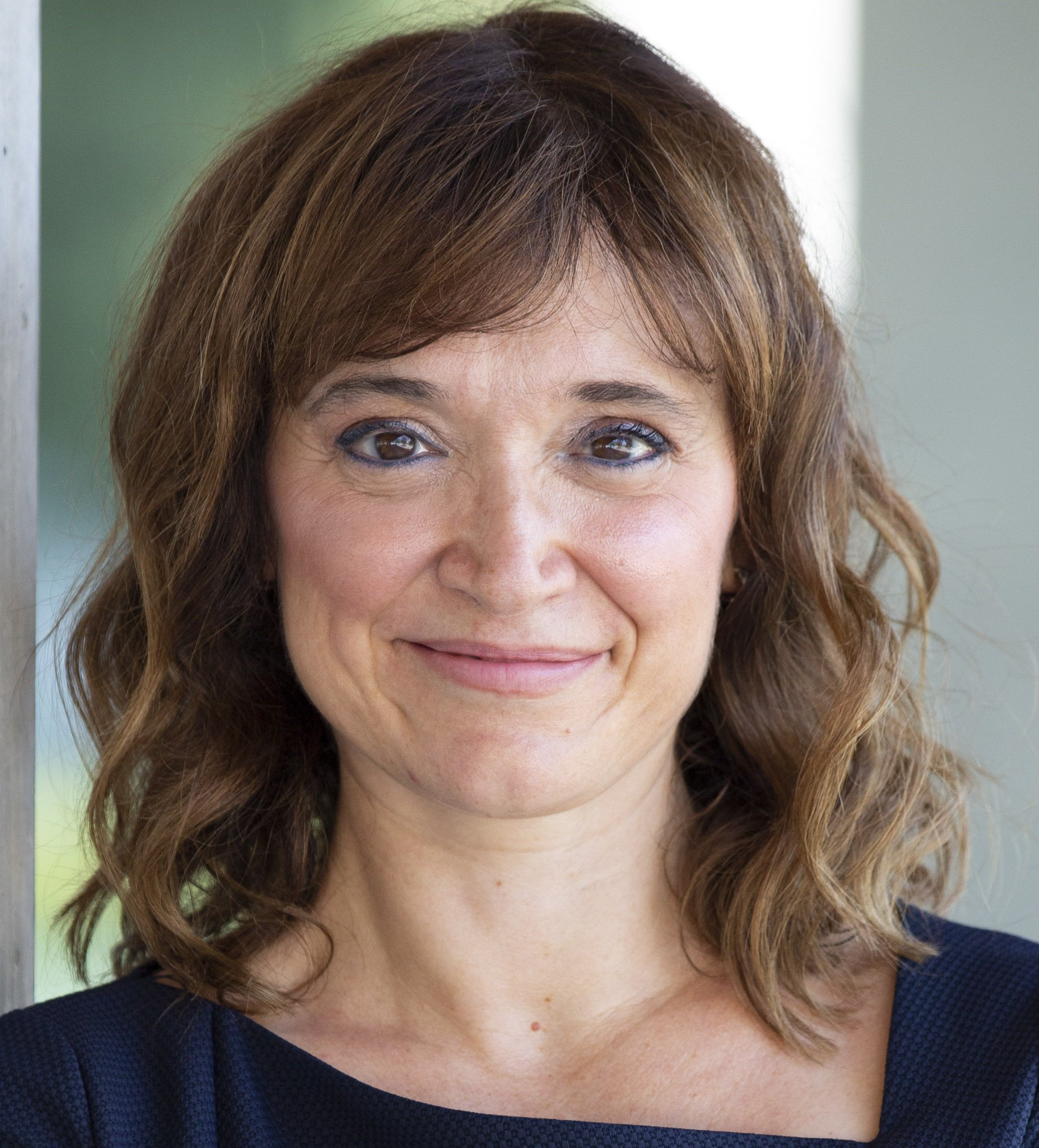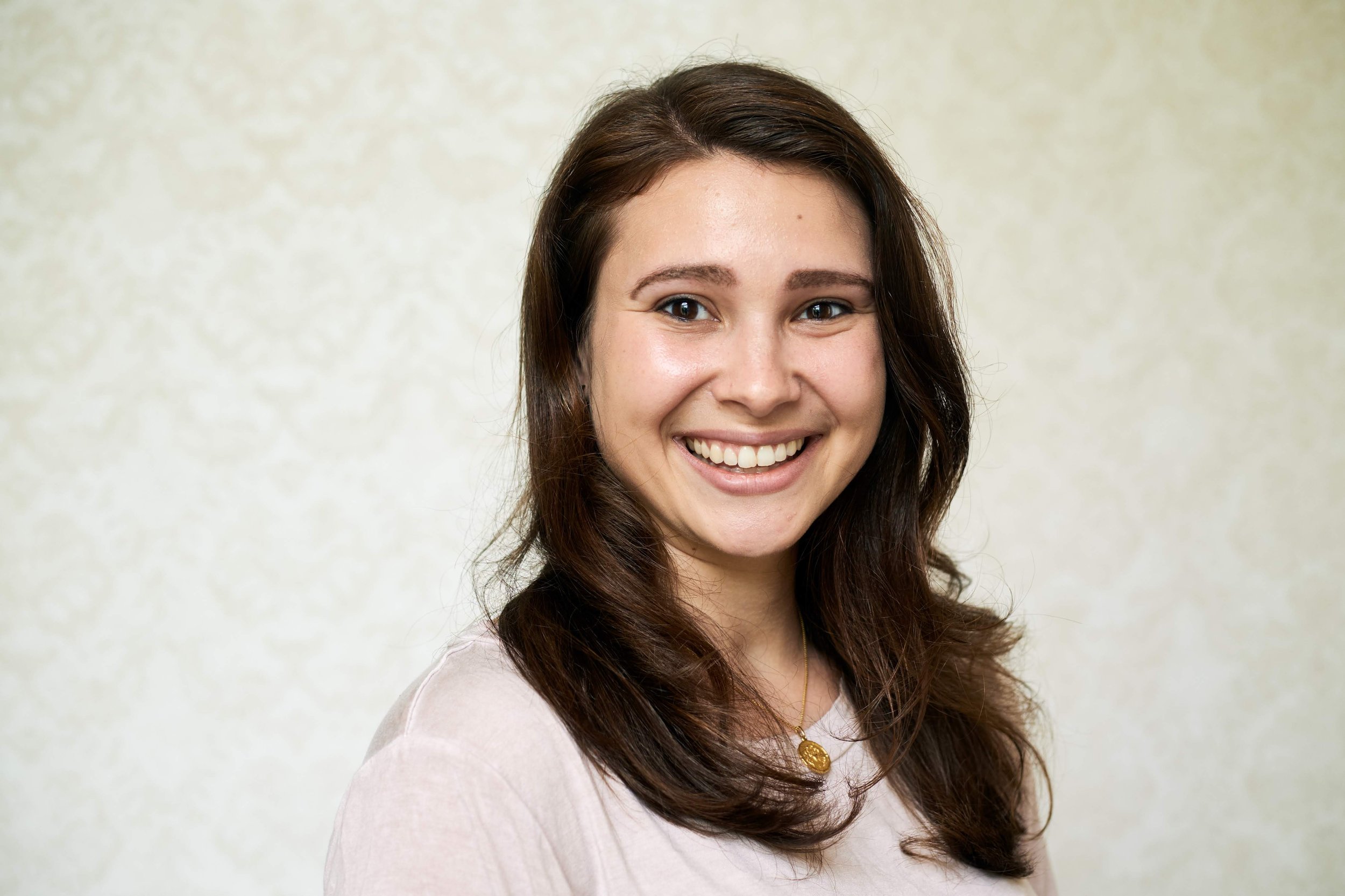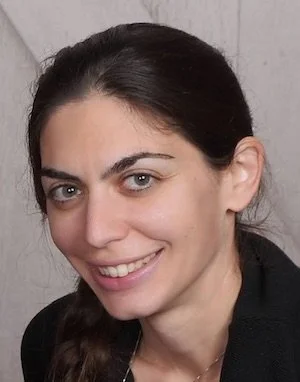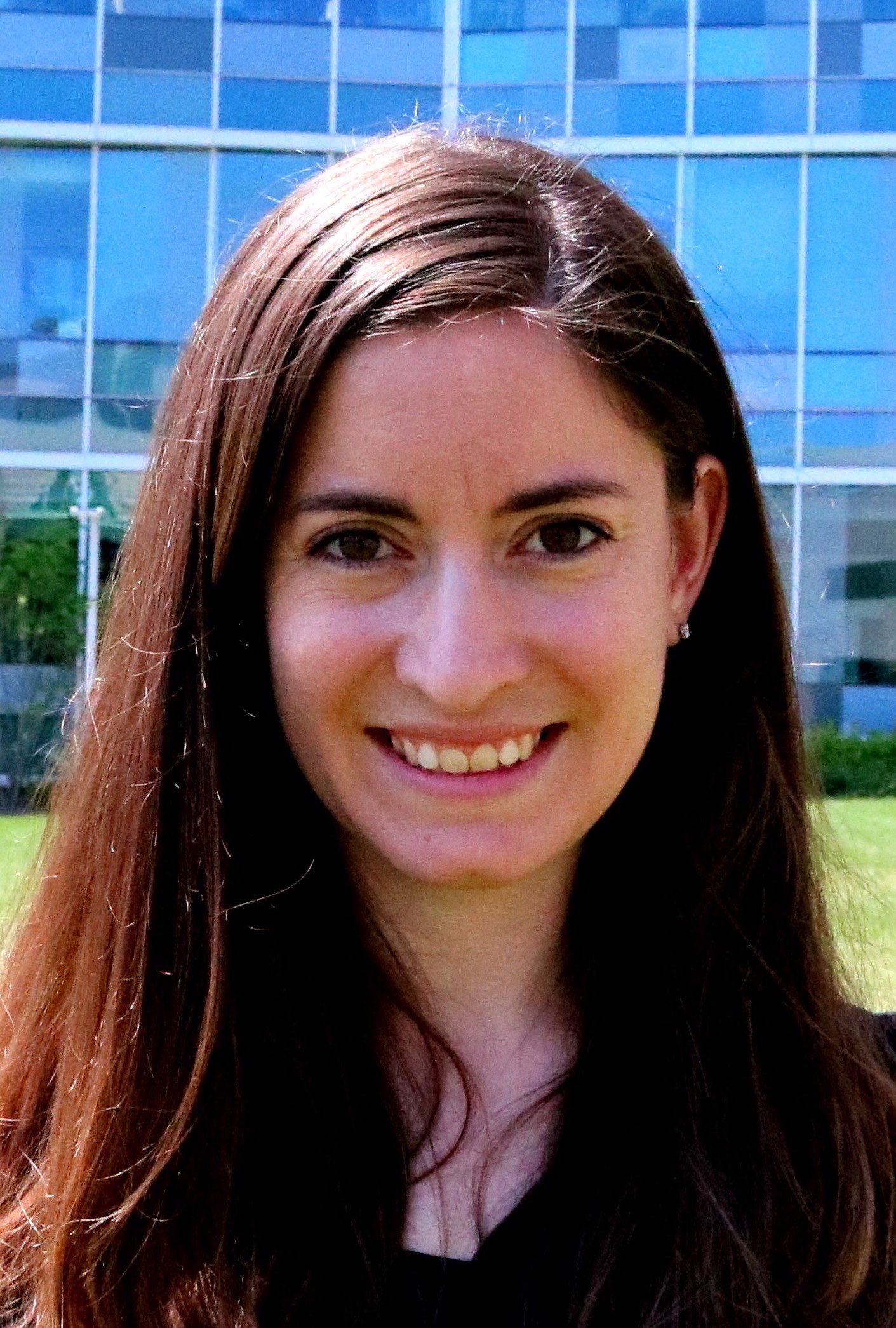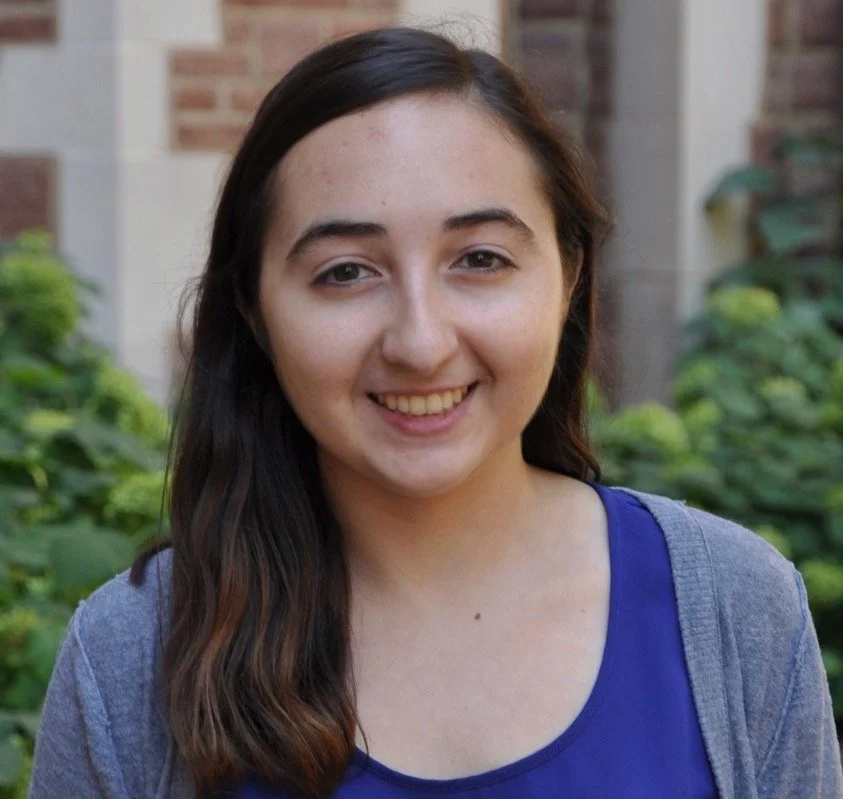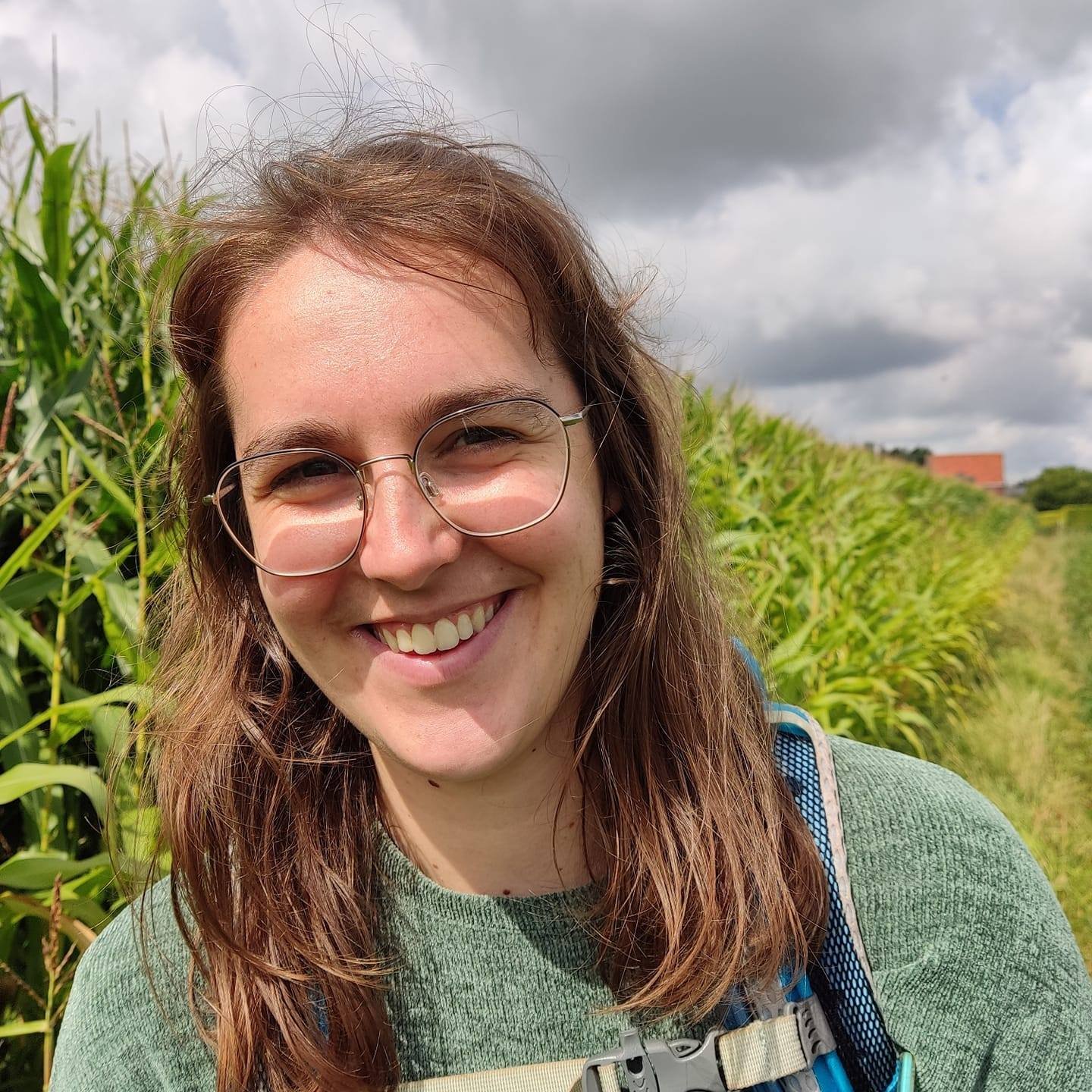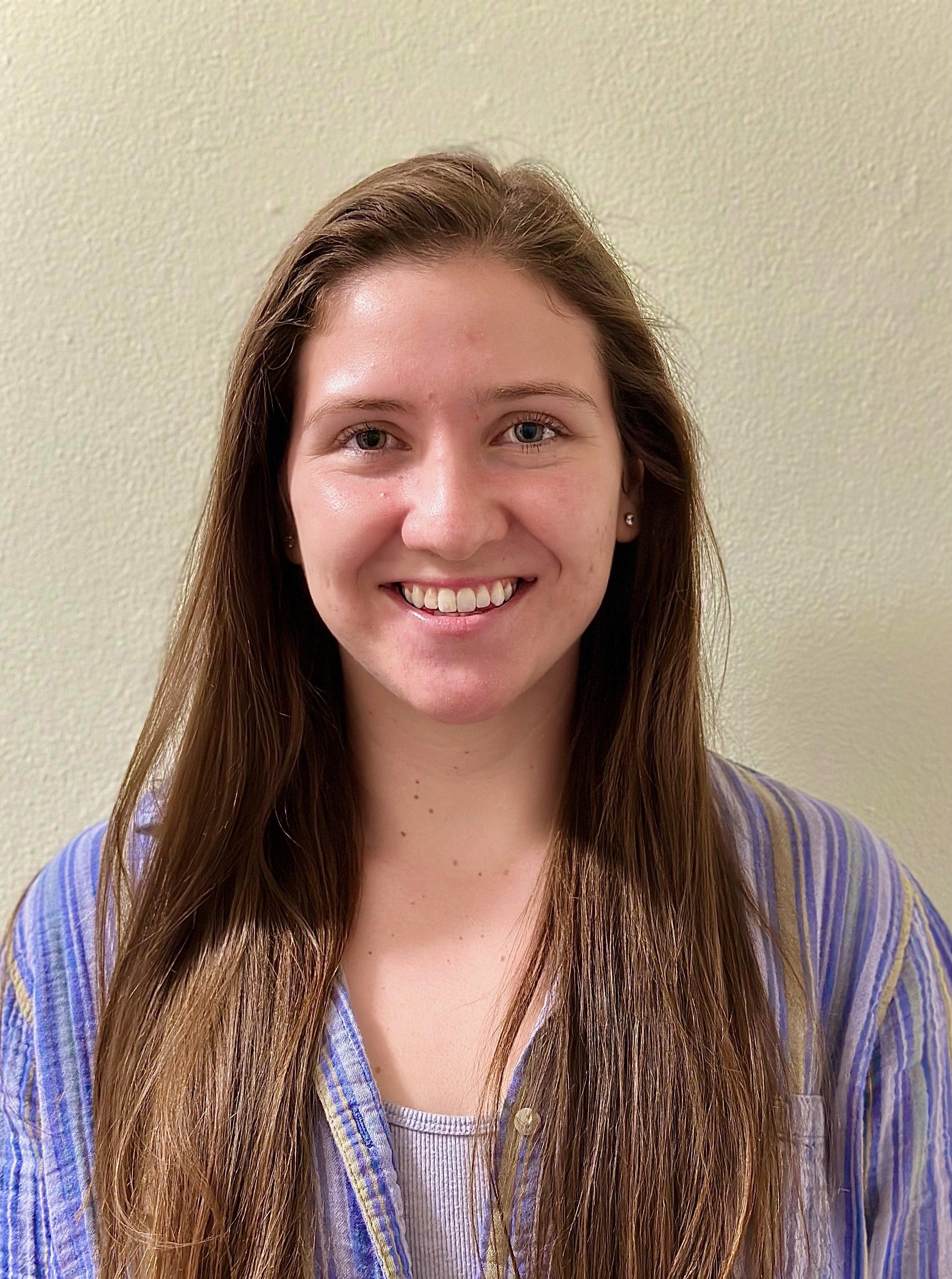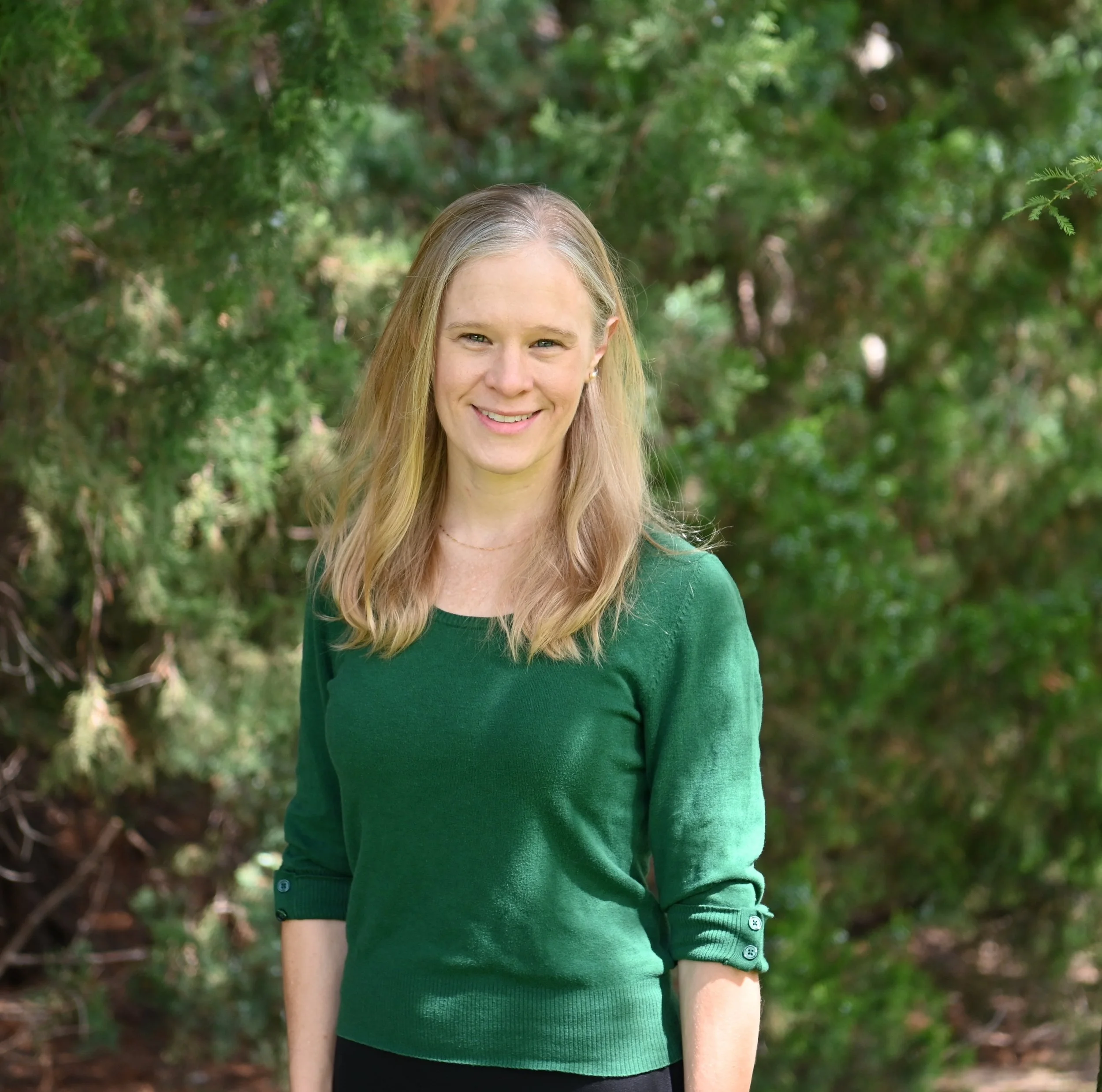A
Mrudula Arunkumar - Graduate Student
Friedrich-Schiller University Jena
Currently my research focuses on understanding the interplay between short term stimulus response pairings and long term learning formed using contingencies. I use learning phenomena from the Pavlovian conditioning to investigate the underpinnings of learning mechanisms.I come from a psycholinguistic background and previously explored how factors such as literacy and music influence the visual or language perception during my masters and research assistantship.
Learning, Episodic retrieval
Maria Augustinova - Professor
Centre de Recherche sur les Fonctionnements et les Dysfonctionnements Psychologiques, Université de Rouen Normandie, France
I am interested in two general questions of when and how various contextual factors influence the control of attentional selectivity. I predominantly study these questions within the well-known (yet still rather poorly understood) Stroop task. I am also interested in the interaction between attention and word-recognition.
Selective attention, Conflict, Automaticity vs. control, Word-recognition
B
Deanna Barch - Professor
Department of Psychological & Brain Sciences, Washington University in St. Louis
My research focuses on understanding normative patterns cognitive function and brain connectivity and the mechanisms that give rise to the challenges in behavior and cognition, particularly cognitive control and motivation, found in illnesses such as schizophrenia and depression, utilizing psychological, neuroimaging and computational approaches.
Goal representation, Motivation, Psychosis, Frontal-parietal network, Cingulo-opercular network
Lydia Barnes - Graduate Student
MRC-CBU, University of Cambridge
I’m interested in how we pay attention to what we’re doing, what we’re experiencing, and what we're planning to do. Where we direct our attention tells us a lot about ourselves — not just how well we can impose control over our thoughts, but how likely we are to try. In my PhD, I’ve been using M/EEG and behavioural tasks to track how we prioritise different features in multi-part tasks.
Attention, Working Memory, Planning, Effort
Zeynep Başgöze - Postdoctoral Associate
Psychiatry and Behavioral Sciences Department, University of Minnesota Medical School
My research mainly focuses on the changes in the emotional and attentional mechanisms in the brain related to mood disorders such as Major Depression Disorder. I'm specialized in designing and analyzing both fMRI and psychophysical experiments. Nowadays I mainly use the RDoC (Research Domain Criteria) approach, which integrates many levels of information such as biology, behavior, brain functions and connections to better comprehend mental issues. I'm also interested in brain plasticity, visual adaptation, and binocular vision.
Cognitive neuroscience, fMRI, Major Depression Disorder (MDD), Emotion regulation, Non-suicidal self-injury (NSSI), Brain plasticity
Anne Berry - Assistant Professor
Brandeis University
My research program investigates the neurochemical basis of individual differences in cognitive function in youth and aging. This research in humans combines behavior, PET imaging of catecholamine systems, and MRI.
Executive function, Aging, Dopamine
Charlotte Boettiger - Professor
Department of Psychology and Neuroscience, University of North Carolina, Chapel Hill
My work focuses on improving our understanding of the neurobiology of alcohol and other substance use disorders by identifying and characterizing neurocognitive biomarkers and intermediate phenotypes.
Executive Function, Addiction, Alcohol, Decision-Making, Automaticity
Flora Bouchacourt - Postdoctoral Associate
Princeton Neuroscience Institute
My research goal is to examine 1) how the human brain builds strategies for learning new tasks, i.e. learn to learn 2) the role of working memory in doing so. The scaffolding for my research is a combination of multilevel theoretical tools from normative modeling, namely Bayesian inference and reinforcement learning, as well as from dynamical neural network modeling, namely abstracted mechanistic and detailed spiking network models.
Computational neuroscience, Working memory, Task-set learning, Metalearning
Özge Bozkurt - PhD Student
Middle East Technical University
My research interests are proactive control, reactive control, and context-dependent control. Specifically, I am working on proportion congruency effects at all levels (LWPC, ISPC, CSPC) to disentangle the underlying mechanisms of cognitive control.
Reactive control, Proactive control, Context-dependent control, LWPC effect, ISPC effect, CSPC effect
Jovita Brüning - Postdoctoral Fellow
Otto-von-Guericke Universität Magdeburg
So far, my main research interest has focused on how well people cope with multiple tasks, with a particular emphasis on individual differences in shifting attention, either voluntarily or instructed. Based on the finding that individuals differ substantially in the way they strategically perform and process multiple tasks, I aim to further disentangle the underlying mechanisms that differ between these individuals using behavioral, neurophysiological, and cognitive modeling approaches. As these differences appear to be rather stable/trait-like, I would like to further investigate their plasticity, their influence and modulation by mental workload, their conscious access, and potential changes due to motivational incentives and task difficulty. I am also interested in individual differences in other cognitive control functions (e.g., inhibition and updating) and their behavioral consequences, as well as their neurophysiological underpinnings.
Cognitive Flexibility, Multitasking, Individual Differences, Task Switching, Cognitive Control States
Donna Bryce - Group Leader: Cognitive Development
University of Tübingen, Germany
In the Cognitive Development group, we aim to understand how cognitive skills change across the lifespan, with a particular focus on school-aged children. The cognitive skills we are mostly interested in help people to respond flexibly to challenging tasks and rapidly changing environments. These skills allow us to remain focused and see a task through to its end, and are crucial for learning. We investigate not only how skills such as cognitive control, working memory, and task switching function, but also how these abilities interact with what we know about our own performance, in our work on metacogniton and introspection.
Cognitive Development, Conflict Adaptation, Executive Functions, Multitasking, Metacognition, Introspection
Julie Bugg - Professor
Department of Psychological & Brain Sciences, Washington University in St. Louis
In the Cognitive Control and Aging lab, we examine the interaction of learning, memory, and cognitive control mechanisms with the overarching goal of understanding how humans minimize susceptibility to distraction. We are especially interested in distinctions between learning-based (experience-driven) and voluntary (expectation-driven) adjustments in control, and between reactive and proactive control. Additionally, our research seeks to understand why some control mechanisms are spared with age in healthy older adults, while others are disrupted.
Conflict-Control Learning; Contextual Influences on Control; Adaptive Control; Aging; Controlling Intentions
Silvia Bunge - Professor
University of California Berkeley
The Building Blocks of Cognition Lab conducts behavioral, eyetracking, anatomical MRI, and fMRI studies to examine the neurocognitive processes that underlie reasoning, as well as developmental and experience-dependent changes and individual differences therein.
Reasoning, Cognitive Control, Brain Development, Brain Plasticity, Learning
Eva Van den Bussche - Professor
KU Leuven, Brain & Cognition research unit
In the Cognitive Control in Context (CogTex) lab, we study how cognitive control is exerted within the complex context we live in today. We examine how cognitive control exertion is influenced by task-related, clinical, developmental, metacognitive and subjective, social and societal factors. Furthermore, our research aims to expose how cognitive control processes are implicated in other cognitive functions, such as insight problem solving (i.e., the Aha experience) and numerical cognition. To address these research questions, we use a multi-method approach, combining behavioral experiments, clinical studies and neurocognitive research (EEG, fMRI, psychophysiology).
Cognitive control, Cognitive effort, Multitasking, Metacognition, Action, Consciousness, Aging, Insight problem solving
Bettina Bustos - PhD Student
University of Iowa, Psychological and Brain Sciences
I am currently a Ph.D. student with Jiefeng Jiang. Broadly, I study how costs for control guide adaptive behavior and information storage through behavioral experiments, neuroimaging, and computational modeling.
Learning and memory of task sets, Effort, Computational modeling
C
Ying Cai - Assistant Professor
Department of Psychology and Behavioral Science , Zhejiang University, China
My research interests include three aspects: (1) the cognitive and neural mechanism of human working memory and cognitive control; (2) the cognitive and neural mechanism of WM training and its transfer effect; (3) how to optimize the cognitive enhancement protocols.
Working memory, Training transfer, Brain plasticity, EEG, fMRI, Transcranial electrical stimulation
Nancy B. Carlisle - Associate Professor
Department of Psychology and Cognitive Science, Lehigh University
My research focuses on our ability to control our attention, and associated processes within memory. I utilize EEG, eye tracking, and behavior to address theoretically motivated questions about attentional control.
Attentional Control, EEG, Visual Search, Memory
Xitong Chen - Graduate Student
University of Iowa
My research interest focuses on understanding the brain mechanisms that underlie the human adaptivity and flexibitlity in behavior, utilizing the combination of neuroimaging, computational methods and behavioral studies.
Cognitive Control, Neuroimaging, Working Memory, Task Representation
Kimberly Chiew - Assistant Professor
University of Denver
I investigate how emotional and motivational influences modulate cognitive processes, with a particular focus on cognitive control and memory, to advance scientific understanding of the mechanisms supporting goal-directed behavior. We use a multimodal approach, combining behavioral and cognitive methods, pupillometry, neuroimaging and neurostimulation methods, and online studies, to characterize these relationships.
Emotion, Motivation, Cognitive control, Memory, Cognitive neuroscience
Lisa Chinn - Postdoctoral Fellow
University of Houston
I use EEG to study functional brain networks during cognitive control, and I’m working on inhibitory control and working memory assessments in virtual reality. My research interests are individual differences in cognitive control, experiences that may enrich cognitive control and working memory, frontal theta, proactive versus reactive control, effects of institutionalization, and sensorimotor development.
EEG, cognitive control, working memory, developmental psychology, frontal theta, sensorimotor development
Yu-Chin Chiu - Assistant Professor
Purdue University
I am interested in how humans exert top-down, cognitive control when bottom-up biases (perceptual, emotional, motivational) are in conflict with the current goal. My lab combines psychophysics with neuroimaging techniques (EEG, fMRI) to understand how cognitive control interacts with learning and memory in producing adaptive/maladaptive behavior.
Cognitive Control, Associative Learning, Subsequent Memory
Jessica A. Church - Associate Professor
University of Texas at Austin
We use fMRI to study the development of the brain’s control processing in youth with and without mental health difficulties. We also study the relations between academic skill growth, control abilities, and control engagement in the brain. We often look at youth over time (say over the course of a school year, or with annual visits) to understand how puberty, skill growth, and control processing develop longitudinally, and the impact of different aspects of individual difference.
Development, Brain networks, Academics, Child, Adolescent, Disorders
Carrisa V. Cocuzza - PhD Candidate
Rutgers University, Center for Molecular and Behavioral Neuroscience
I’m currently a PhD candidate at Rutgers University working under the advisement of Dr. Michael W. Cole. My research uses computational modeling techniques to uncover brain network mechanisms underlying cognitive processes, including visual category selectivity, cognitive control, and flexible learning. I am interested in the role of brain interactions and large-scale functional network architecture(s) in generating neurocognitive processes.
Network neuroscience, Connectivity, Cognitive control networks, Flexible hubs, Goal-directed cognition, Cognitive flexibility, Distributed processing mechanisms, Human neuroimaging, Predictive models, Computational models
Alexandra O. Cohen - Postdoctoral Associate
New York University
My research focuses on understanding the neural and cognitive mechanisms underlying how motivationally salient learning experiences shape the memories that drive future behaviors from childhood to adulthood.
Learning, Memory, Cognitive control, Motivation, Emotion, Development, Cognitive neuroscience
Jessica R. Cohen - Associate Professor
Department of Psychology and Neuroscience, University of North Carolina at Chapel Hill
My research program investigates how brain regions organize into networks, and how brain network organization underlies different aspects of cognition across the lifespan. We focus mainly on cognitive control, learning, and motivation and are particularly interested in how brain development underlies the emergence of cognitive ability in childhood and cognitive decline in older adulthood in both normative and atypical contexts (i.e., in typically developing populations and in populations with psychiatric disease, such as ADHD).
Cognitive control, Motivation, Brain networks, Development, ADHD, Psychopathology
Noga Cohen - Assistant Professor
University of Haifa
I study the ways in which emotion, attention, and cognitive control shape human behavior and experience. My lab uses a combination of behavioral, psychophysiological, and brain imaging methods to understand adaptive and maladaptive emotion regulation processes. We study basic emotion regulation mechanisms and design cognitive interventions with the aim to improve emotion regulation among healthy and clinical populations.
Cognitive control, Emotion regulation, Pupillary response, fMRI
Anne GE Collins - Assistant Professor
UC Berkeley, Psychology, HWNI
We study instrumental learning, and in particular how humans achieve fast, flexible and generalizable learning. This involves control processes, so we work at the interaction of reinforcement learning and executive functions. We use mostly behavioral and computational methods, but also do some human imaging and EEG, developmental and patient studies, and collaborate regularly with non-human animal labs.
Reinforcement learning, Working memory, Structure learning, Generalization, Computational modeling
Savannah L. Cookson - Postdoctoral Fellow
Helen Wills Neuroscience Institute, University of California, Berkeley
I'm a postdoctoral fellow in Dr. Mark D'Esposito's lab at the University of California, Berkeley. I am trained as a cognitive neuroscientist and experimental psychologist. My research aims to understand how the different scales of functional organization observed in the brain - for example, regional and network-level - work together to support complex behavior.
Task abstraction, Frontal cortex, Large-scale networks, Multiple network membership
Roshan Cools - Professor
Donders Institute for Brain, Cognition, and Behavior; Radboud University
My goal is to understand the mental processes, computations, and neural mechanisms that enable and motivate us to act in accordance with our goals. I approach this question by studying effects of challenging the major ascending neuromodulators, such as dopamine, noradrenaline and serotonin. These systems have diffuse ramifications throughout cortical and subcortical regions that enable them to exert a global influence on brain function. However, they also modulate dissociable functions, in part reflecting their innervation of distinct target regions. To study these effects, we combine psychopharmacology, functional MRI, neurochemical PET and computational cognitive modelling in human volunteers with and without neuropsychiatric disorders.
Motivation, Cognitive Control, Neuromodulation, Cognitive Flexibility
Ana Cubillo - Senior Researcher
University Psychiatric Clinic, University of Basel, Switzerland
My research is focused on the developmental aspects of cognitive and emotional self-regulation processes, both in typically developing children as well as in clinical populations, together with potential avenues for intervention. To do so, I combine brain imaging and cognitive neuroscience methods, and tailor neuropsychological tasks to the study goals.
Cognitive control, Self-regulation, Neurodevelopment disorders, Developmental Cognitive Neuroscience, Computational neuroscience, Working memory
D
Hannah Dames - Graduate Student
University of Zurich and University of Freiburg
I explore (1) how people control the contents of their working memory and (2) the long-term effects of doing so. Specifically, my research focuses on the intentional remembering and forgetting of information. I am particularly interested in how this affects not only declarative but also procedural memory (e.g., stimulus-response associations).
Intentional Forgetting, Action Control, Working Memory, Associative Learning
Claudia Danielmeier - Assistant Professor
University of Nottingham
Research in our lab focuses on cognitive control, attentional processes, and their effects on memory in healthy individuals and individuals with neurodevelopmental disorders. Specifically, we investigate goal-directed behaviour, performance monitoring and associated behavioural and neural adjustments which can be observed before, during or after errors.
Performance Monitoring, Post-error Adjustments, Error Awareness, Memory, Neurodevelopmental Disorders
Juliet Y. Davidow - Assistant Professor
Department of Psychology, Northeastern University
The research conducted in the Learning and Brain Development Lab bridges classic areas in psychology, neuroscience, and computer science, to investigate different types of learning. The lab studies children, adolescents, and adults, to ask how learning behaviors change with age and can influence what gets remembered, how decisions are made, how actions are regulated, and affects goals.
adolescence, goal-directed behavior, learning, memory, decision making, cognitive control, hippocampus, striatum, vmPFC, vlPFC, behavioral development, brain development, social development
Theresa M. Desrochers - Assistant Professor
Brown University
We perform sequences of tasks, such as making a sandwich, every day. We have to plan and execute a series of goals, in the correct order, in order to accomplish this. We also have to organize routine motor actions (such as cutting a tomato or slicing bread) and be able to adapt them to changing circumstances (such as getting a tomato from the refrigerator or the garden). We have very little understanding of how the brain accomplishes these tasks. Broadly, we seek to understand how habits and motor sequences are organized into sequences of tasks through research that combines animal and human experimental models
Cognitive control, Behavioral sequences, Decision making, Cross-species, fMRI, TMS, Electrophysiology
Adele Diamond - Canada Research Chair Professor
University of British Columbia
I study how executive functions are affected by biological factors (such as genes and neurochemistry) and by environmental ones (e.g., impaired by stress or improved by interventions). Our discoveries have thrice changed international medical guidelines for treatment of diseases and have had a significant impact on educational practice worldwide.
Executive functions, Prefrontal Cortex, Children, Inhibitory control, Interventions, COMT gene
Darcy Diesburg - PhD Student
University of Iowa
I study the network-level fronto-basal ganglia mechanisms that enable motor and cognitive inhibitory control in humans. To do this, I leverage behavioral paradigms in combination with convergent cognitive neuroscience methods including EEG, TMS, DBS, and intracranial recordings (depth and ECog). In future research, I plan to use biophysical modeling approaches to probe the population-level mechanisms that underlie the large-scale electrophysiological signatures we attribute to control, with the aim of advancing our cognitive theories of inhibitory control.
Inhibitory control, Stop-signal task, Electrophysiology, TMS, DBS, Biophysical modeling
Elisa Di Rosa - Assistant Professor
Department of General Psychology, University of Padova, Italy
My research mainly focuses on understanding the relation between cognitive control, motivation and affective processes, in neurological disorders such as Parkinson’s disease, and during healthy aging. I adopt neuropsychological and psychophysiological approaches, as well as neuroimaging and non-invasive brain stimulation techniques.
Executive Functions, Cognitive Control, Motivation, Parkinson’s disease, Aging, Clinical Neuropsychology, ERPs, fMRI, Non-invasive brain stimulation
Hannah Doyle - PhD Candidate
Brown University
I am broadly interested in using fMRI in primates and fMRI and TMS in humans to study cognitive control. In particular I aim to better understand the neural mechanisms underlying sequential processing, particularly in people with obsessive-compulsive and related disorders.
Cognitive Control, Sequence Learning, Decision Making, fMRI, TMS, OCD
Gesine Dreisbach - Professor
Department of Psychology, University of Regensburg
In my research, I am studying those processes (usually referred to as cognitive control) that enable the flexible adjustment of action and thought to changing internal and external requirements. I am specifically interested how processes of cognitive control interact with affect and motivation. Critically, I aim to understand how affect and motivation modulate cognitive control and, vice versa, how processes of cognitive control (like for example conflict processing) alter affect and motivation.
Cognitive Control, Affect, Motivation
Iroise Dumontheil - Professor of Psychology & ARC Future Fellow
Melbourne School of Psychological Sciences, University of Melbourne
My research focuses on the typical development of social cognition and cognitive control during adolescence and their interplay. I use a variety of methods to study brain and cognitive development including functional and structural neuroimaging, cognitive and behavioural assessments, and genetics. I am interested in the impact of cognitive training, from computerised games to mindfulness meditation practice, on cognition in childhood and adolescence, as well as the potential implications of neuroscience research for education.
Executive functions, fMRI, Educational neuroscience, Development, Cognitive training
E
Charlotte Eben - Postdoctoral Fellow
University of British Columbia & University of Cologne
Currently, am a Marie Skłodowska-Curie Actions Postdoctoral Fellow at the Biopsychology lab at the University of Cologne and the Centre for Gambling Research (CGR) at the Department of Psychology, University of British Columbia (UBC), Vancouver, Canada. I am interested in action control, decision making and emotions in gambling episodes.
Action control in gambling, Impulsivity, Cognitive control, Post-error adjustments
Yaara Erez - Assistant Professor
Faculty of Engineering, Bar-Ilan University, Israel
My research focuses on neuroimaging of the human brain to identify and understand functional brain networks and how they relate to behaviour, in particular cognitive control. My lab’s research is at the intersection of cognitive neuroscience and neuro-engineering, using multiple imaging modalities to understand brain function. At the cognitive level, we are particularly interested in the effects of attention on information processing and representation. We use computational approaches for data analysis and develop methods for individual-oriented neuroimaging in healthy and clinical populations. In addition to understanding fundamental neural mechanisms, we aim to advance clinical diagnosis and treatment for a variety of brain disorders such as patients with brain tumours.
Cognitive Control, Attention, Individual-Oriented Neuroimaging, fMRI, ECOG, Brain Tumors, Computational Modelling
F
Monica Fabiani - Professor
University of Illinois at Urbana-Champaign
My research interests are in the cognitive neuroscience of aging and the development of tools for the non-invasive mapping of human brain function. My work encompasses several interconnected lines: (1) contributions of cerebrovascular status to structural, functional, and cognitive aging, using new pulse-DOT measures to assess cerebral arterial elasticity; (2) Neurophysiological and structural bases of cognitive control, attention and working memory in aging, with a focus on individual differences; and (3) development of non-invasive optical brain imaging methods and their integration with currently existing methods.
Cognitive Neuroscience of Aging, Working Memory, Attention, Cognitive Control, Cardiorespiratory Fitness, Cerebrovascular Health
Lesley K. Fellows - Professor
Department of Neurology & Neurosurgery, McGill University
My research aims to define the causal contributions of regions within the human frontal lobes to component processes of decision-making, executive function, and emotion regulation. I mainly approach this by studying the effects of focal frontal lobe damage in humans. As a neurologist, I am also interested in how fundamental research findings can inform clinical diagnosis and treatment of the many neurological, psychiatric, and medical conditions marked by executive dysfunction.
Decision neuroscience, Executive functions, Neuroeconomics, Neuropsychology
Eva Feredoes - Assistant Professor
School of Psychology and Clinical Language Sciences, University of Reading
I am interested in how the brain solves the impact of distraction during working memory. I use multi-modal causal neuroimaging approaches, including concurrent TMS-fMRI, combined with behavioural modelling, to show the brain regions acting in concert to protect the contents of of working memory.
working memory, functional connectivity, TMS, concurrent TMS-fMRI, multi-modal imaging
Jacqueline Fulvio - Research Scientist
Department of Psychology, University of Wisconsin - Madison
I am interested in how people overcome uncertainty when preparing to act on their world. I am especially interested in understanding how prior knowledge interacts with current sensory information when making decisions and planning actions. My current work focuses on selective context-based processing of incoming visual information and prioritization of information in working memory using behavioral psychophysics, TMS, EEG, and fMRI.
Working Memory, Perception, Cognitive Control
Emmanouela Foinikianaki - PhD Student
Ghent University, Department of Experimental Psychology
My main research interest lies on cognitive control and reinforcement learning. At the LCC lab led by Prof Clay Holroyd we aim to develop and test a new formal, unified theory of the anterior cingulate cortex (ACC) function. I mainly focus on the investigation of hierarchical switch costs and the effects of reward on the ACC patterns of activity during sequential behavioral paradigms using functional neuroimaging (fMRI) and multivariate analysis.
Cognitive control, Anterior cingulate cortex, Reinforcement learning, Hierarchical learning, Hierarchical switch costs
Birte U. Forstmann - Professor
University of Amsterdam
Our general research goal is to understand the brain mechanisms that allow people to adapt quickly to changes in their environment. Our work combines mathematical modeling with functional magnetic resonance imaging (fMRI), diffusion weighted imaging (DWI), ultra-high resolution 7T MRI, electroencephalography (EEG), and postmortem work. Our general research strategy capitalizes on individual differences in psychological processes involved in decision-making and interference control. Process models and descriptive models quantify the process of interest for each individual separately, and structural and functional brain imaging techniques subsequently relate inter-individual variation in psychological processes to inter-individual variation in the neural substrate.
Model-based cognitive neuroscience, Cognitive modeling, Neuroimaging
Naomi P. Friedman - Associate Professor
University of Colorado Boulder, Institute for Behavioral Genetics and Department of Psychology and Neuroscience
My research focuses on individual differences in executive functions –– high-level cognitive abilities that enable individuals to regulate their thoughts and actions during goal-directed behavior. I study the neural and genetic mechanisms of executive functions, their structure, and their relations to self-regulation, psychopathology, and other cognitive abilities.
Executive functions, Cognitive control, Self-regulation, Psychopathology, Genetics, Twins
Kerstin Fröber - Postdoctoral Associate
Institute of Psychology, University of Regensburg
I’m primarily interested in the adaptive balance between cognitive flexibility and stability. In my research, I use behavioral experiments, sometimes complemented by additional methods like EEG, pupillometry or drift diffusion modelling.
Cognitive Flexibility, Task Switching, Motivational and Affective Modulations of Cognitive Control
Romy Frömer - Senior Research Associate
Brown University
I study when and how humans adjust information processing in order to achieve their goals. In my work, I use behavioral experiments, neuroimaging (EEG, fMRI), eye-tracking and computational modeling.
Decision-making, Cognitive Control, Motivation, Metacognition, Learning
G
Miriam Gade - Professor
Medical School Berlin
I come from a classical experimental background, thus clever experiments are my favorite way to do research. Recently I got interested in habitual inner speech (i.e., self-instruction and performance evaluation) and its influence on conflict task and I have a long-lasting interest in bilingualism research as well as the ageing cognitive system, particularly inhibition capacities.
Cognitive control, Task switching, Inhibition, Bilingualism, Inner speech in cognitive control, Hierarchical drift diffusion modelling
Carina G. Giesen - Postdoctoral Associate
General Psychology II, Friedrich Schiller University, Jena, Germany
My research centers on automatic action regulation processes that are due to stimulus-based retrieval of episodic action plans (stimulus-response couplings). Often, these processes act in concert with processes of cognitive control (like global control adjustments or distractor inhibition) and I am interested in finding out how our cognitive system makes use of these different processes in order to optimize our performance. I also study how episodic memory processes and distractor inhibition develop over the life course (from young children up to elderly people). Furthermore, I am interested in contingency learning, either in self-performed tasks or from observing responses of others, and I study how social factors impact on observational learning.
Automatic action regulation, Interplay cognitive control/episodic retrieval processes, Distractor inhibition, Observational & implicit learning
Lauren Danielle Grant - Postdoctoral Fellow
Washington University in St. Louis
My research focuses on the processes underlying cognitive control, which allows one to - among other things - resist temptation, minimize distraction, and adapt to recent events.
Cognitive Control, Task Switching, Attention
Caterina Gratton - Assistant Professor
Department of Psychology, Northwestern University
My research is focused on characterizing human brain networks and how they contribute to complex, goal-directed behaviors such as attention. My lab uses a broad methodological toolkit to study these processes in the healthy population and how they break down with damage and disease. One recent focus of our research is in the development of "precision" techniques to deeply-phenotype individuals, in an effort to account for and describe heterogeneity in brain function across people.
Goal-directed processing, Cognitive control, Large-scale brain networks, Fronto-parietal network, Cingulo-opercular network, fMRI, TMS
Yao Guan - Postdoctoral Fellow
University of Iowa
We are interested in how humans carry out and maintain goal-directed behaviors and how the brain reacts to sudden events that put their goals in peril (such as unexpected events or action errors).
Cognitive Control, Error Processing, Unexpected Event, Theory of Mind
H
Julie Mae Hall - Assistant Professor
Department of Health, Medical and Neuropsychology, Leiden University
I am interested in the overlapping and unique roles of different neuromodulators such as dopamine and noradrenaline in cognitive and behavioural processes, and how these neuromodulators shape (functional) network topology in both health and disease.
Cognitive Neuroscience, Parkinson’s Disease, Network Topology, Neuromodulators
Lauren S. Hallion - Assistant Professor
Department of Psychology, University of Pittsburgh
Why do our minds sometimes "go blank" when we're feeling nervous or self-conscious? What is actually happening, cognitively and neurally, when we say someone is "stuck in their head"? At the CNMA lab, our goal is to develop a better understanding of worry, rumination, and other kinds of "stuck thought." We investigate these questions using a range of methods, including experimental psychopathology, quantitative modeling, and functional neuroimaging (fMRI). Ultimately, our goal is to identify the best ways to help people "get out of their heads" and back into their lives.
Worry, Anxiety, Cognitive control, Sustained attention, Cognition-emotion interactions
Tina Hourany - Graduate Student
Paris Brain institute
I am currently working on finding objective markers that characterize mental fatigue in clinics (through computational models and EEG), which will help predict functional recovery after treatment among resistant-depression and glioma patients and possibly extended to other neuropsychiatric conditions in which fatigue is a recurrent symptom.
Mental Fatigue, anxiety, Neuropsychology, Decision-Making, Cognitive Control, Impulsivity
I
Merve Ileri Tayar - Graduate Student
Department of Psychological & Brain Sciences, Washington University in St. Louis
I am a PhD student in Dr. Julie Bugg's Cognitive Control and Aging Lab. My research mainly focuses on learning and transfer of attentional control settings. Additionally, I am investigating the influence of global and local expectations on the adjustment of attentional control settings over and above the influence of experience.
attentional control settings, flexible behavior, proportion congruence effects, experience-driven control, expectation-driven control
Katie Insel - Postdoctoral Research Fellow
Columbia University
My research focuses on understanding how adolescent brain development shapes motivation, learning, and cognitive control. I use neuroimaging, behavioral tasks, and computational modeling to understand how goal-directed behaviors develop from childhood to adulthood. My goal is to identify how the development of functional brain systems relates to the emergence of both adaptive and maladaptive behaviors.
Adolescence, Motivation, Cognitive control, Learning, Decision-making, Memory
J
Becky Jackson - Lecturer
University of York
In the Necsus (NEuroComputational Strategy to Understand Semantics) Lab, we utilise a multi-disciplinary neuro-computational approach to investigate semantic control, semantic representation and their interaction across the lifespan. Continual translation between computational and neuroimaging methods allows the creation, testing and refinement of precisely-specified mechanistic accounts of higher-order cognition.
Semantic Control, Neural Networks, Semantic Cognition, Connectivity, fMRI, MEG, Language
Jade Buse Jackson - Postdoctoral Fellow
MRC Cognition and Brain Sciences, University of Cambridge
My research involves developing and testing neuroimaging (fMRI/MEG) and brain stimulation (TMS) paradigms to study the foundational features of neural processing underpinning the human capacity for flexible cognition. This includes the selection, representation and causal dynamics of task-relevant information in the human brain, and whether and when the information we read out from the brain with neuroimaging is meaningful for cognition and behaviour.
Cognitive neuroscience, Cognitive control, Attention, Concurrent TMS-fMRI, MVPA
Caroline Jahn - Postdoctoral Fellow
Princeton Neuroscience Institute
My research aims at understanding how we operate the trade-off between following our internal model of the world or exploring and updating this model. This involves understanding how internal models are represented and updated in the frontal cortex and how they are used to guide the behavior. I have a particular interest in the role of neuromodulators such as noradrenaline in regulating this trade-off.
Decision-making, Learning, Exploration, Attention, Frontal Cortex, Noradrenaline
Shanice E. W. Janssens - Postdoctoral Fellow
Department of Cognitive Neuroscience, Maastricht University
I am particularly interested in non-invasive brain stimulation (NIBS) methods such as transcranial alternating current stimulation (tACS) and transcranial magnetic stimulation (TMS). I use NIBS in combination with neuroimaging methods such as electroencephalography (EEG) and functional magnetic resonance imaging (fMRI), to investigate communication in the brain’s attention and depression networks. I furthermore aim to increase the efficacy and consistency of NIBS, by calibrating stimulation protocols to individual oscillatory markers.
Non-invasive brain stimulation, neuroimaging, attention, vision, emotion, depression
Ines Jentzsch - Reader
School of Psychology & Neuroscience, University of St Andrews
I study the processes that underlie our ability to plan and control our actions, using both behavioural and electrophysiological approaches. I am also interested in how these processes change as a function of expertise (e.g., in groups with high levels of motor skills such instrumental musicians), normal aging and psychological illness.
Attention, Cognitive Control, Music Cognition
Amelie C. Jung - Ph.D. Student
University of Greifswald
I am interested in cognitive control processes especially those involved in dual tasking. My work focuses on the efficiency of these processes with respect to temporal fluctuations, changes in the task context, and cognitive effort. I am also investigating the relation between vigilance components and interference control in dual-task scenarios.
Cognitive Control, Persistence of Cognitive Control States, Attentional Processes within Multitasking, Vigilance, Cognitive Effort, Implicit Learning
K
Andrea Kiesel - Professor
University of Freiburg
Humans usually interact with their environment according to their goals. But behavior is not fully determined by goals- rather, outer stimulation as well as inner states together shape the actual action. I aim to identify processes that allow humans to reach their goals despite of interference, especially in multitasking (mostly task switching) contexts. Thus, my research covers the topics of action and cognitive control, self-organization, conflict adjustment, using regularities in the world for predictive timing and associative learning. In addition, I am interested in how humans perceive their own actions and their consequences in terms of sense of agency. We strive to use this knowledge to better understand human actions in general but also for particular types of actions, e.g. regarding environmental behavior and when interacting with (novel) technologies.
Task switching, Conflict Paradigms
Sachiko Kinoshita - Associate Professor
School of Psychological Sciences, Macquarie University
I am interested in the workings of the mind, and use experimental methods (e.g., masked priming, Stroop task) to study “automatic” processes (that are generally considered the diametrical opposite of “control”!) that are difficult to introspect on.
Automatic processes, Stroop interference, Masked priming, Visual word recognition, Unconscious processes
Anastasia Kiyonaga - Assistant Professor
Cognitive Science, University of California, San Diego
Research in my lab bridges across sub-disciplines of cognitive neuroscience and psychology to examine how working memory interacts with perception, attention, and action. We use a combination of behavioral, neuroimaging (fMRI), and brain stimulation (TMS) methods to study how humans prioritize moment-to-moment goals in the face of competition.
Human cognitive neuroscience, Working memory, Transcranial magnetic stimulation
Ruth M. Krebs - Professor
Department of Experimental Psychology, Ghent University
In our lab we investigate how motivational signals influence cognition and behavior, and the neural mechanisms that give rise to these modulations. We take a multi-dimensional approach, both in terms of methods (performance, neuroimaging, inter-individual differences) and functions (reward, emotion, effort). Beyond understanding the basic mechanisms, we aim to translate our research to applied contexts such as pro-environmental behavior and clinical conditions.
Motivation, Cognitive effort, Pro-environmental behavior, Neuroimaging
L
Regina Lapate - Assistant Professor
Psychological & Brain Sciences, University of California, Santa Barbara
Our lab uses neuroimaging and causal methods to investigate neural mechanisms underlying emotion perception, metacognition and emotion regulation. We seek to answer questions such as: (1) What neural mechanisms promote emotion regulation? (2) How do neural representations in distinct prefrontal regions modulate emotional behavior? (3) What is the function of conscious awareness in emotion and cognitive control? To answer these questions, we use a multimodal approach that emphasizes causal inference (e.g. TMS), and includes recordings of peripheral physiology, electroencephalography, and functional neuroimaging—often combined with behavioral assays and analyses anchored in individual differences.
Emotion regulation, Cognitive control, Metacognition
Hyejin J. Lee - Postdoctoral Fellow
Korea University
I am interested in how the implementation of cognitive control instigates changes to attention and memory using computational and neuroimaging methods. Recently, I am examining how use of proactive and reactive control leaves memory traces and how the retrieval of the traces modulates attention in future interactions.
Attention, Memory, Learning, Computational Modeling
Elise Lesage - Postdoctoral Fellow
Department of Experimental Psychology, Ghent University
I am interested in why people make the (sometimes bad) decisions that they do, and how conscious effortful and trained automatic processes interact in reward-based decision making. My current work focuses on habit learning and addiction, using computational modelling, fMRI and brain stimulation. I also have a soft spot for non-motor functions of the cerebellum, which I did my PhD on.
Habit learning, Cognitive control, Reward, Decision-making, Addiction, Non-motor cerebellum
Min (Lydia) Li - Graduate Student
University of Toronto
My research largely focuses on exploring the neural mechanisms that link early life adversity with mental health outcomes. I am interested in using quantitative research design to answer my research questions.
Developmental Psychopathology, Mental Health, Early Life Adversity
M
Devu Mahesan - Ph.D. Candidate
University of Greifswald
I am interested in studying different kinds of dual-task interferences and their underlying mechanisms. My current focus is on the flexible adjustment and regulation of these dual-task interferences by exploring impacting factors (e.g., context, recently experienced conflict, etc.) and using non-invasive stimulation techniques such as tDCS.
Multitasking, Dual-task Interference, Conflict Adaptation, tDCS
Alexandria Meyer - Graduate Student
Florida State University
My research explores the brain networks involved in cognitive control using multiple different methodical techniques. Specifically, I am interested in individual differences seen in network connectivity and how that translates to behavioral performance.
Cognitive control, frontoparietal control network, fMRI, transcranial magnetic stimulation, functional connectivity, individual differences
Mackenzie Mitchell - Graduate Student
University of North Carolina at Chapel Hill
I am currently a PhD student working with Dr. Jessica R. Cohen. My research largely focuses on how functional brain networks support cognitive control across childhood and adolescence. I use fMRI and network neuroscience tools to investigate changes in brain networks across contexts (e.g., with and without external incentives), as well as across time (e.g., during the transition to adolescence).
Cognitive Control, Motivation, Brain Networks, Functional Connectivity, Development
Anahid S. Modrek - Assistant Professor
Department of Psychology, Thomas Jefferson University
A developmental psychologist by training, Dr. Modrek's research program looks at the cross-section of cognitive science and education with an agenda that seeks to answer questions pertaining to the development of explanations and learning, and how broader contexts - ranging from levels of autonomy to the education system - affect their development. Focal themes addressed in Dr. Modrek's most recent line of work highlight adolescence in contrast to early childhood, where early childhood is characterized as an early period of broad hypothesis search and exploration, a type of learning that lasts until new demands – such as those of education, and goal-directed exploitation–set in. Adolescence has received less attention, especially in the context of formal learning, and Dr. Modrek and her lab have preliminary data suggesting learners in this age group are not a simple interpolation of what’s seen with young children and adults.
Autonomy; Cognitive Development; Pedagogy; Self-regulation; Cognitive Science
Inga Mögling - Ph.D. Candidate
University of Greifswald
In my research I focus on the induction and generality of cognitive control states. I use and combine various multitasking paradigms to discover their underlying mechanisms. With this I would like to shed light on (1) the working principles of reactive and proactive control strategies in different task settings and (2) the robustness, generality and limitations of such control adjustments.
Cognitive Flexibility and Control; Multitasking; Generality of Cognitive Control States; Conflict Processing
Yuko Munakata - Professor
Department of Psychology, Center for Mind and Brain, UC Davis
In the Cognition in Context lab, we investigate variations in thinking that occur based on people’s goals, motivations, and propensities, as they develop across infancy, childhood, adolescence, and adulthood, in relation to physical, social, and cultural environments. Much of our work focuses on executive functions, given the role that they play in shaping thoughts and behaviors, the dramatic changes observed across development, and the links between executive functioning and important life outcomes.
Cognitive Control, Executive function, Inhibition, Cognitive Effort, Development
N
Asako Mitsuto Nagase - Postdoctoral Researcher
Tottori University
I am studying the behavioural and neural mechanisms for decision-making and learning based on mental efforts for rewards. I am also studying motivational disorders.
Learning, Decision-making, Frontal Cortex, Effort, Cognitive Control, Motivational Disorders
Jessica Nicosia - Postdoctoral Research Associate
Knight Alzheimer’s Disease Research Center, Washington University School of Medicine
My research explores: (1) technology adoption in older adults, (2) leveraging smartphone-based remote assessments for early detection of Alzheimer disease (AD), and (3) age- and AD-related changes in attentional control, mind-wandering, and memory.
Alzheimer’s disease, Attention, Mind-wandering, Episodic memory, Technology
O
Hanneke den Ouden - Associate Professor
Donders Institute for Brain, Cognition and Behaviour, Radboud University Nijmegen, the Netherlands
We study the neural and computational mechanisms that underlie our rational and irrational decisions. We use psychopharmacological interventions to dissect the role of neuromodulators such as dopamine and serotonin, and stimulate and measure brain activity to find out which brain circuits are involved. Finally, we study how decision-making is altered in psychiatric disorders like OCD, autism and depression, with the ultimate aim of improving diagnosis and treatment.
Decision making, Reinforcement learning, Cognitive and motivational control, Computational modelling, Dopamine, Serotonin, Neuroimaging
P
Juhi Parmar - Graduate Student
Friedrich Schiller University Jena, Germany
I study the relationship between reinforcement (rewards and punishment, so to speak) and automatic processes called "stimulus-response binding and retrieval" (SRBR) that influence human behaviour (like habits). The goal of my research is to determine whether SRBR processes underlie reinforcement learning with the aim of contributing to a deeper understanding of the mechanics of RL.
Learning, Cognition, Action Control, Binding and Retrieval, Affective Consequences
Lisa Payne - Assistant Professor
Rutgers University-Camden
I’m interested in the mechanisms of inhibitory cognitive control that support attention, short-term memory, and lexical selectivity. My research combines behavioral and EEG techniques to characterize suppression of task-irrelevant, external and internal distractions.
Inhibitory Cognitive Control, Selective Attention, Short-term memory, Cognitive Neuroscience
Daniela M. Pfabigan - Postdoctoral Fellow
Department of Behavioural Medicine, University of Oslo, Norway
My background is in biological psychology and I am interested in how error and feedback processing are influenced by variable contextual factors. Those can be changes in one's social context, but also motivational or metabolic changes. Moreover, I am interested in how physical characteristics of feedback stimuli impact on performance monitoring and behaviour. For my research, I have mostly used EEG and psychophysiological methods, but more recently also fMRI and psychopharmacology.
Error and feedback processing, Reward, Gut-brain interactions
Christina U. Pfeuffer - Junior Professor
Department of Psychology, Catholic University of Eichstätt-Ingolstadt, Germany
I am investigating how humans control their actions based on predictable regularities in their environment. In this context, I am particularly interested in anticipatory eye movements that we direct towards the locations of our actions’ future consequences and the cognitive control operations these eye movements reflect. My main focus is on eye tracking and behavioral experiments both in-lab and online and I am interested in bridging basic research in Cognitive Psychology and its application in human-technology interaction settings.
Action Control, Cognitive Control, Associative Learning, Predictability, Attention, Eye Tracking, Anticipatory Eye Movements, Binding
Camille Phaneuf - Graduate Student
Harvard University
I am a PhD student with Professor Leah Somerville at Harvard University, where I study developmental and computational cognitive neuroscience. My research aims to elucidate how individuals learn and seek new information, how individuals use memories of the past and simulations of the future to guide their decision-making, and how individuals evaluate the benefits of their cognitive control in light of the costs required to exert it. I am particularly interested in how these goal-directed processes change into, during, and out of adolescence, and I leverage behavioral, fMRI, and computational modeling methods in my work.
Development of (Reward- and Emotion-) Motivated Cognitive Control; Effort, Learning, Memory, Decision-Making; Behavior, fMRI, Computational Modeling
Andrea M. Philipp - Postdoctoral Fellow
Cognitive and Experimental Psychology, RWTH Aachen University
My research interests include different forms of human multitasking like language switching and task switching. For me, the ability to switch between different languages or tasks is extremely fascinating and through my research I am trying to better understand which cognitive mechanisms enable this flexibility. Further, I am also interested in modality-specific influences, for example when switching between different response modalities (vocal vs. manual responses).
Bilingualism and language switching, language control, executive functions, role of response modalities
Ella Podvalny - Postdoctoral Fellow
Rutgers University
My research concerns the question of how large-scale brain networks support goal-directed behavior via ongoing anticipatory activity. I am specifically interested in how perceptual systems attune to environmental regularities and how higher-order cortical areas interact with brainstem neuromodulatory centers in accordance with behavioral demands.
Ongoing Brain Activity, Large-scale Brain Networks, Neuromodulation, Arousal, Decision Making, Anticipation, Automaticity and Control, Goal-directed Behavior
Sarah De Pue -PhD Student
KU Leuven, Brain & Cognition, Belgium
During my PhD I am investigating cognitive control, and more specific the balance between proactive and reactive control, in healthy and clinical aging, using behavioral tasks and EEG. Moreover, at the beginning of my PhD, the COVID-19 pandemic started, which had a great impact on older adults. Therefore we added an additional objective on the impact of COVID-19, as an extreme stressor, on the cognitive functioning and wellbeing of older adults.
Cognitive Control, Aging, Proactive Control, Reactive Control
R
Rachel Rac-Lubashevsky - Postdoctoral Fellow
Department of Cognitive, Linguistic & Psychological Sciences, Brown University
I study the cognitive control mechanism that governs working memory selections (gating) and the interaction between working memory and the reinforcement learning system. I'm specifically interested in the questions of how we decide what and when to encode information into working memory and how we decide which information in working memory is useful to guide behavior? I study these questions using behavioral experiments, EEG, and computational modeling.
Working Memory, Cognitive Control, Reinforcement Learning, Gating, Decision Making, EEG
Alodie Rey-Mermet - Senior Teaching and Scientific Assistant
UniDistance Suisse
Attentional control – also called cognitive control, executive functions, or inhibition – refers to our ability to maintain and implement a goal and goal-relevant information when facing distraction. My work has highlighted the difficulty of measuring attentional control as a general and valid construct leading to success in different tasks and situations. For this research, in addition to developing new experimental paradigms, I have combined an experimental approach with a correlational approach. I have used different techniques, such as behavioral methodologies, meta-analyses, and psychophysiological measures (e.g., EEG/ERPs). Moreover, I have applied different statistical approaches, such as structural equation modeling, linear mixed modeling, Brinley analysis, and state-trace analysis
Attentional control, Cognitive control, Executive functions, Inhibition, Individual differences, Reliability, Validity
Marion Rouault - Senior Postdoctoral Fellow
Department of Cognitive Studies, Ecole Normale Supérieure de Paris, France
I am interested in the neurocognitive mechanisms underlying metacognition, learning and decision-making in humans, which I investigate using carefully controlled behavioural experiments in tandem with computational modelling and neuroimaging, in healthy and patient populations.
Metacognition, Decision-Making, Confidence, Behavioral Control, Computational Psychiatry, Computational Modeling, fMRI, Learning
Marit Ruitenberg - Assistant Professor
Leiden University, the Netherlands
My work focuses on the cognitive and neural mechanisms underlying sensorimotor function across the lifespan, both in health and neuro(psycho)logical disorders. With my studies, I aim to work towards a better understanding of how our brain controls movement, and how such control changes due to aging or disorders such as Parkinson’s disease, Alzheimer’s disease, or depression.
Motor control, Cognitive control, Aging, Parkinson's disease
Maria Ruz - Professor
Department of Psychology, University of Granada
Brief description of your research (up to a few sentences): I am interested in studying how the human brain codes information to prepare for upcoming challenges, and how this coding changes dynamically according to task goals or context.
Cognitive control, Preparation, Novel instructions, fMRI, EEG, MVPA
S
Sepideh Sadaghiani - Assistant Professor
Department of Psychology and the Beckman Institute for Advanced Science and Technology, University of Illinois at Urbana-Champaign
My work investigates the role of neural connectivity and spontaneous brain activity in cognitive control and behavior through a multi-modal lens.
Alertness, Attention, Connectomics and Network Neuroscience, Intrinsic Brain Activity, Multi-Modal Neuroimaging
Ceyda Sayalı - Postdoctoral Associate
Center for Psychedelic and Consciousness Research, Johns Hopkins University
My primary interest is in understanding the neurocognitive mechanisms underlying the therapeutic effects of psychedelic drugs. I aim to elucidate the effects of psychedelic drugs on cognitive control and relate these effects to their long term mental health benefits.
Cognitive control, Motivation, Psychedelics, Cognitive effort, Depression, fMRI, EEG, TMS
Friederike Schlaghecken - Associate Professor
Department of Psychology, University of Warwick
I'm interested in how our brains respond - and adjust - to our environment. I'm particularly interested in the automaticity of so-called 'control' processes, and in the control of so-called 'automatic' processes, in the links between perception and action, inhibitory motor control processes, early vision, and subliminal perception, and in individual differences between and the lifespan development of these processes.
Sensorimotor control, Automaticity, Adaptation
Roberta Sellaro - Assistant Professor
Department of Developmental Psychology and Socialization, University of Padova
My current research aims at assessing how internal (e.g., emotions, bodily signals) and external (e.g., contextual, social) factors modulate our cognitive control efficiency and its adaptability.
Executive Functions, Cognitive Control, Emotion, Psychophysiology, Virtual Reality
Dolly Seeburger - Graduate Student
Georgia Institute of Technology
My research focuses on understanding both state-level and trait-level neural mechanisms of attention control, as well as their interaction across cognitive demands.
Attention Control, Flow State, Brain Networks, Individual Differences, State Fluctuations, Locus Coeruleus, Exercise Impacts on Cognition
Magdalena Senderecka - Associate Professor
Jagiellonian University in Cracow, Poland
Within the first area of my research I examine the influence of individual differences on cognitive control processes. The main goal of my studies is to investigate whether and how the efficiency of these processes depends on specific individual characteristics such as impulsivity (in healthy and clinical populations, e.g., ADHD children), indecisiveness, different personality traits, as well as religious beliefs. Within the second area of my research I explore the interaction effects between emotion and cognitive control. I am especially interested in how response inhibition, error detection and action monitoring operate when affective or motivational variables are considered. My research is based on neurophysiological (EEG-ERPs), behavioral and self-report methods.
Error detection, Performance monitoring, Response inhibition, Cognitive–emotional interactions, Event-related potentials
Audrey Siqi-Liu - Graduate Student
Department of Psychology and Neuroscience, Duke University
I am interested in how we adaptively recruit control based on environment and task demands. My current research focuses on cognitive flexibility, and I use behavioral and EEG measures to explore whether different levels of flexibility are maintained as a tonic states or recruited in response to specific tasks.
Cognitive Neuroscience, Cognitive Control, Flexibility, EEG
Heleen Slagter - Professor
Vrije Universiteit Amsterdam
Our research seeks to understand how the brain pays attention and perceives the world around us, and how attention and perception are shaped by past experiences, action affordances, and mental training, as cultivated by meditation.
Attention, Consciousness, Predictive Processing, Meditation, Cognitive Neuroscience, EEG, MVPA
Hannah Snyder - Assistant Professor
Department of Psychology, Brandeis University
Adolescence and emerging adulthood (early 20s) are periods of heightened risk for mental health problems, including anxiety and depression. In the Cognition, Psychopathology, Environment (CoPE) lab, we seek to better understand risk and resilience factors for mental health during this period, focusing on how stress, cognitive function (especially executive function), and coping strategies interact.
executive function; stress; depression; anxiety; emerging adulthood
Marjorie Solomon - Professor
School of Medicine, University of California, Davis
My work examines intellectual and cognitive control development through the lifespan with an emphasis on individuals with autism. I use neuropsychological, cognitive neuroscience and neuroimaging measurements in my work. I also investigate issues related to how cognitive control interacts with memory and learning in the individuals I study. As a clinical psychologist, I am also concerned with issues related to mental health and cognition, and have done some clinical trial and intervention work.
Cognitive control, Autism, Adolescent development, Lifespan development, Cognitive control of learning and memory
Jasmin Stein - Graduate Student
TU Dresden
My research focuses on how different cognitive control processes are altered by the experience and/or biomarkers of acute and chronic psychosocial stress. In my work, I combine behavioral tasks with functional magnetic resonance imaging and the collection of biomarkers of acute and chronic stress.
Cognitive Control, Self-Control, fMRI, Stress, Cortisol
Kelsey Sundby - Postdoctoral Fellow
National Institute of Neurological Disorders and Stroke
My research examines the neural basis of executive control, the suite of cognitive processes responsible for selecting and executing actions consistent with our goals. My research breaks down this broad inquiry into three areas: response inhibition; memory's impact on behavior and decision- making; and how memories are encoded and retrieved from neural activity.
Executive Control, Memory, Decision-Making
Caroline Surrey - Postdoctoral Fellow
TU Dresden
I focus on 2 core scientific interests. On the one hand, I investigate the mechanisms of flexible regulation of cognitive control, especially in different demanding contexts. On the other hand, an increasing research priority is on the environmental psychological question why people do not adjust their behavior in a sustainable way, e.g. to avert climate change, although they are aware of the negative consequences. Here I develop reliable methods to capture ecological behavior and explore approaches that promote pro-ecological behavior.
Cognitive Control, Context-specific Regulation of Cognitive Control, Pro-environmental behavior
Nicole C. Swann - Assistant Professor
University of Oregon
The Swann lab studies the neuroscience and neurophysiology of movement in both health and disease. Our work focuses on how different parts of the human brain interact to generate and control movements and how these processes can be disrupted in disease. We address these questions in humans using a systems neuroscience approach. We are particularly interested in movement disorders like Parkinson’s disease. To investigate these questions we use a combination of non-invasive and invasive electrophysiological methods in humans to record brain activity in both patients and healthy people.
Neuroscience, Motor control, Movement disorders, Electrophysiology
T
Chunyue Teng - Postdoctoral Fellow
University of Wisconsin-Madison
My research focuses on the cognitive and neural mechanisms of working memory. In particular, I study how working memory interacts with ongoing perception, and how the interactions among a variety of cognitive functions (e.g., working memory, cognitive control, and learning) give rise to adaptive behavior. I use a combination of psychophysics, fMRI, and EEG to address these questions.
Working Memory, Attention, Cognitive Control
Malathi Thothathiri - Associate Professor
George Washington University
I run the Neuroscience of Language Lab at GWU. We investigate the relationship between cognitive control and sentence processing in aphasia, healthy adults, and children.
Cognitive Control, Language, Aphasia, Sentence Comprehension, Sentence Production
Darinka Trübutschek - Marie Sklodowska-Curie (MSCA) Postdoctoral Research Fellow
Max Planck Institute for Empirical Aesthetics, Frankfurt/Main, Germany
Broadly speaking, I am interested in unraveling how perception and memory interact with and shape each other in the human brain. My research aims to understand basic mechanisms of how we perceive and store information about our environment, and then use that information flexibly and adapt it to different contexts in order to pursue our plans and goals. I use behavioral manipulations together with time-resolved brain electrophysiology (i.e., EEG, MEG, & ECoG) and machine learning to address these questions.
Human Cognitive Neuroscience, Conscious & Non-conscious Perception, Working Memory, Magnetoencephalography (MEG), Intracranial EEG, Machine Learning
V
Maddie Valdez - Graduate Student
Washington University in St. Louis
My overarching research interest is understanding how memory and other related cognitive processes change (or stay the same) with age. I am especially interested in investigating the cognitive control mechanisms that support prospective memory, understanding how these mechanisms change with age, and developing strategies to mitigate the effects.
Prospective memory, Episodic memory, Cognitive Control, Aging
Eliana Vassena - Assistant Professor & Senior Researcher
Behavioural Science Institute, Radboud University & Donders Institute, Radboud University Medical Center
In the MED Lab (Motivation, Effort & Decision Making), we combine neuroscience with computational psychiatry to study the cognitive and neural mechanisms that underlie psychiatric disorders such as depression and anxiety. I'm a neuroscientist with a clinical background, interested in how the brain guides motivated effortful behaviour, I study how alteration of brain circuits driving motivation and effort leads to pathology. I use functional MRI, computational modelling and Artificial Intelligence approaches, experimental measures of behaviour, physiology, neurostimulation, and pharmacology.
Effort, Motivation, Cognitive Control, Reward, Dopamine, Noradrenaline, Computational Psychiatry, Computational Modelling, fMRI
Kirsten A. Verhaegen - Ph.D. Student
KU Leuven
In my PhD project I study cognitive-motor dual-tasking from two perspectives. In a fundamental section I focus on the behavioral and neural mechanisms of concurrent cognitive and motor control. In a translational section I study embodied cognition in the educational context using a citizen science approach.
Cognitive Control, Cognitive-Motor Dual-Tasking, Embodied Cognition, Citizen Science
W
Jill Waring - Associate Professor
Saint Louis University
The Cognitive and Affective Neuroscience of Aging Lab investigates the interactions of cognition and emotion processing across the adult lifespan, with a particular focus on control of responses to emotional information (emotional response inhibition). Other areas of research compare effects of Alzheimer's disease to typical cognitive aging. We employ behavioral, EEG/ERP, and fMRI approaches.
Cognitive and Affective Control, Emotion, Response Inhibition, Cognitive Aging, Memory, Alzheimer's Disease
Blaire Weidler - Assistant Professor
Towson University
Dr. Weidler studies visual attention – or the cognitive operations involved in selecting what to focus on in scenes such as those that we encounter daily (e.g., traffic intersections, kitchens). She is specifically interested in how the way in which individuals interacted with the environment in the past influences where they choose to allocate attention in the future. She is also interested in applying her understanding of cognition to real-world problems (e.g., finding cognitive solutions to reduce errors during baggage screening).
Context and Attentional Control
Alexandra Woolgar - Programme Leader Track Scientist
MRC-CBU, University of Cambridge
We combine multimodal human neuroimaging (functional Magnetic Resonance Imaging, fMRI, magnetoencephalography, MEG, electroencephalography, EEG) and brain stimulation (transcranial magnetic brain stimulation, TMS) with advanced analytical methods to study how information is represented, exchanged and transformed in the brain. We focus on key frontoparietal brain regions which appear to prioritise coding of task-relevant information, providing a neural basis for the top-down control of selective attention. We study the temporal dynamics and causal interactions of information coding in and between this and other brain networks, and seek to understand the links between neural processing and behaviour.
Attention, Cognitive Control, Frontoparietal Cortex, Top-Down, MVPA, fMRI, TMS, MEG
Y
Debbie Yee - Postdoctoral Research Fellow
Brown University
My research seeks to understand how humans integrate motivational value to adaptively allocate cognitive control to perform mentally challenging tasks. I utilize a multimodal approach, which combines innovative experimental paradigms, cognitive neuroscience methods, and computational modeling to identify the key mechanisms that govern interactions between motivation, affect, and cognitive control. My interdisciplinary training in computational cognitive neuroscience integrates theoretical model-based methods (e.g., Bayesian multilevel models, multivariate pattern analyses, drift-diffusion models) with neural data (e.g., fMRI) to elucidate these dynamic multi-dimensional interactions. Ultimately, I hope to leverage a foundational understanding of value-based decision-making mechanisms to inform how motivational and cognitive impairments arise in psychiatric and neurological disorders across the human lifespan.
Motivation, Cognitive control, Decision making, Cognitive neuroscience, Computational psychiatry
Brooke Yeager - PhD Student
University of Iowa
I am a cognitive neuroscientist interested in the neural networks that support cognitive control and working memory mechanisms. In particular, I use a multi-modal approach to address how these networks become disrupted as a result of neurological disorders or psychiatric syndromes, with a current emphasis on the cognitive dysfunction seen as a result of Parkinson's Disease. I am interested in utilizing an integrative framework in my research through the combination of neuroimaging (fMRI, EEG) and neuromodulation methods (TMS/tES).
Cognitive neuroscience, Neuromodulation, Neuroimaging, fMRI, EEG, Parkinson’s Disease
Qing Yu - Principal Investigator
Institute of Neuroscience, Center for Excellence in Brain Science and Intelligence Technology, Chinese Academy of Sciences
My work combines neuroimaging techniques (including fMRI, EEG, MEG, etc.) with psychophysics and computational modeling, to understand the neural mechanisms of visual and high-level cognition. Specifically, I am interested in the neural mechanism of working memory, and its interaction with perception, attention, imagery, cognitive control, and consciousness.
Cognitive Neuroscience, Working Memory, Cognitive Control, Visual Imagery
Z
Kaiqi (Cathy) Zhang - Ph.D. Student
Washington University in St Louis
I study cognitive control and mental labor. I am interested in how different factors affect our decision and approach to engage in cognitively demanding tasks. I also explore the neural representation of value and rewards with computational modeling.
Cognitive Control; Value-based Decision Making
Laoura Ziaka - Postdoctoral Researcher
University of Oslo, Norway
My current focus is on understanding cognitive control and attentional allocation under demanding—close to real-life—situations. On the assumption that attention is dynamically adjusted, my working hypothesis is that under cognitive overload attentional shifts (i.e., moving from a more parallel to a more serial processing) occur.
Cognitive control, Interference, Cognitive Overload, Eye Tracking




















